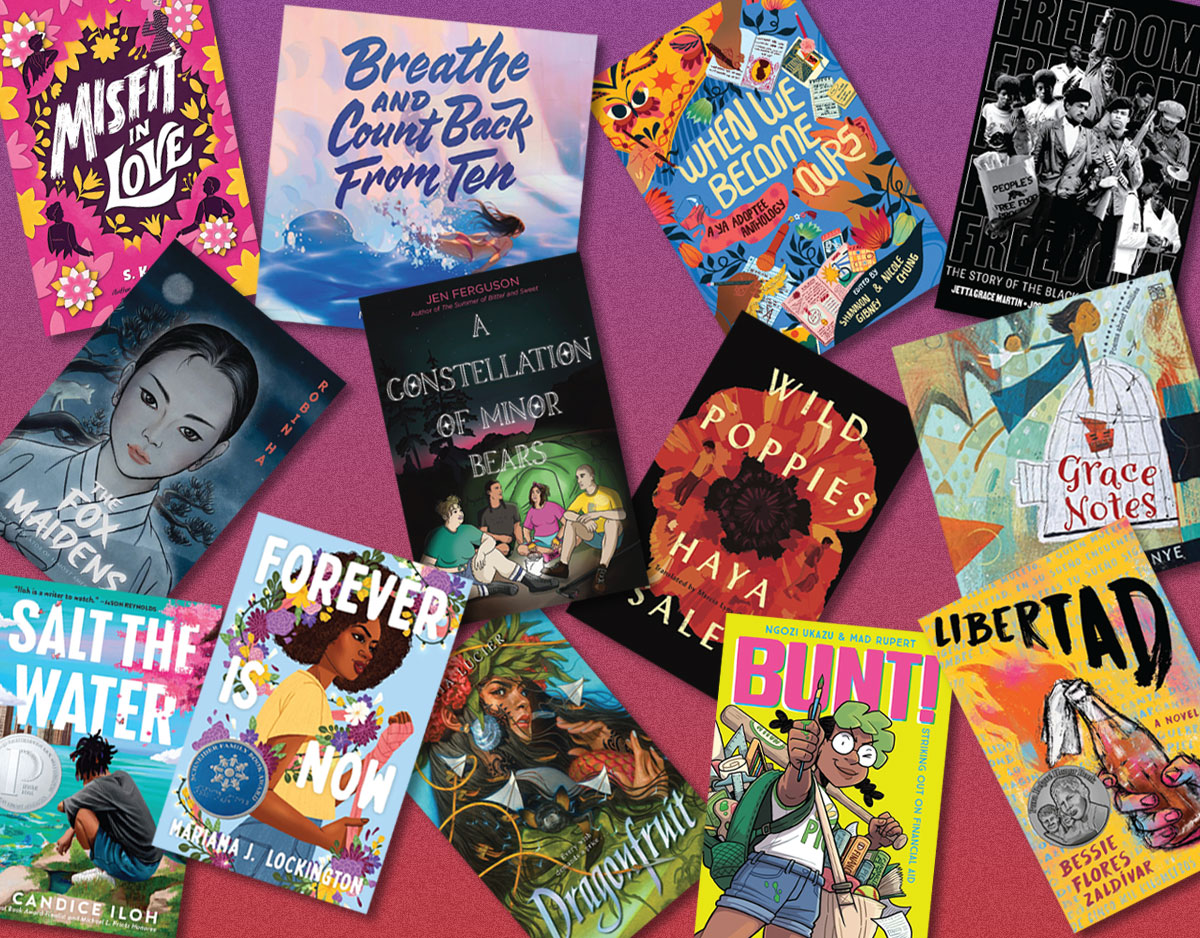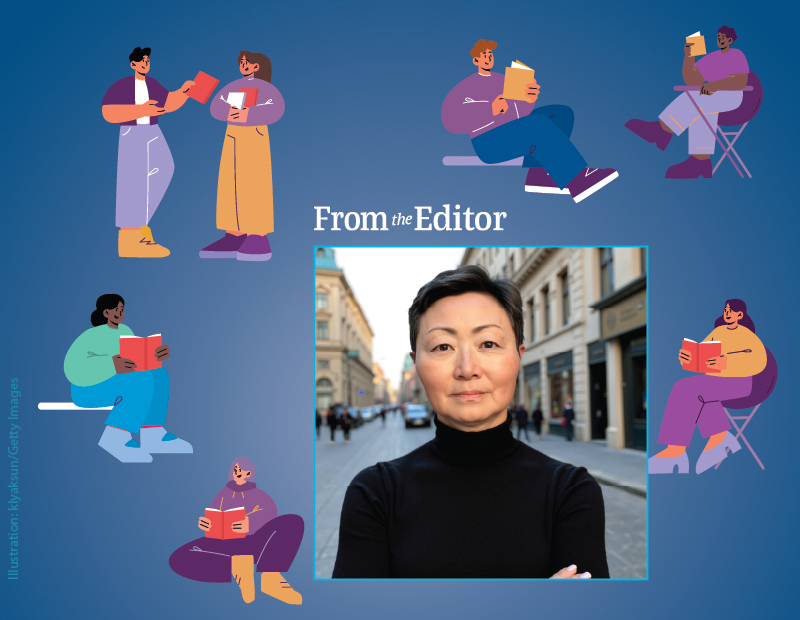SCROLL DOWN TO READ THE POST
Series, Schmeries: What’s the Big Deal?
And now, for the epic throw-down you’ve all been waiting for: series vs. stand-alone books! Dun-dun-DUNNNNN! I freely admit that I worked myself up into a rhetorical tizzy as I drafted this post. Last week, I cheerfully volunteered to write the first entry in our exploration of series vs. stand-alone titles. Let’s just say that I’ve lived to regret that nonchalant confidence.
Let’s go!
According to the song (and Omar Little, perhaps its most famous fictional interpreter), the cheese stands alone, but to be considered for YA literature’s highest prize, must a book stand alone, too?
ADVERTISEMENT
ADVERTISEMENT

Let’s begin by first noting that the current Printz Policies & Procedures do not stipulate that a winning or honor title has to stand alone as a narrative. It used to say that, or something very close to it, not long ago. The brilliant and thoughtful LizB has furnished the criteria from her year (2009 — let’s call them P&P Classic), including the following statement:
“The book should be self-contained, not dependent on other media for its meaning or pleasure. The book should not be considered in terms of other works by the author but as complete in itself.”
The 2011 and 2012 committees adhered to those rules, even though they’re no longer codified within the Policies & Procedures. As a P&P nerd, I’m curious about when those two sentences were removed, and why.
A survey of this master list of Printz Award winner and honor titles reveals the following series titles:
- TRUE BELIEVER, by Virginia Euwer Wolff
- POSTCARDS FROM NO MAN’S LAND, by Aidan Chambers
- THE FIRST PART LAST, by Angela Johnson
- AIRBORN, by Kenneth Oppel
- CHANDA’S SECRETS, by Allan Stratton
- THE POX PARTY, by M.T. Anderson
- DREAMQUAKE, by Elizabeth Knox
- THE KINGDOM ON THE WAVES, by M.T. Anderson
- THE MONSTRUMOLOGIST, by Rick Yancey
Of these, TRUE BELIEVER and DREAMQUAKE are mid-series titles and THE KINGDOM ON THE WAVES is the conclusion of a duet of books.
So, what does “stand-alone” really mean, and how important is it? To be sure, a book must stand on its own merits — that’s why committee members only consider the books in front of them, without comparing, and it’s why we are expected to leave at the door our longstanding affection for (or loathing of) a particular author’s oeuvre. But is it possible for a book to stand on its own merits as a work of literature and also be an integral (and fully integrated) part of a longer narrative at the same time?
I’ll be honest: I started writing this post firmly on the side of YES, but as I thought about reasons to vote NO, my commitment wavered, as I realized it was primarily a gut-level vote! So I’m going to sort of cop out and outline below possible reasons for both NO and YES and hope that you smarties can help me sort through my thicket of thoughts and feelings.
On the side of NO:
- Exposition: too much in Book Ones, not enough (or clumsily done) in Book Twos or Threes.
- Genre: I love books in all sorts of genres, but far more winner and honor titles have been contemporary realistic fiction than any other genre (and of course, realistic fiction is a genre, with many sub-genres). Many series are published in genres that often have a hard time muscling up to the Serious Literature Table. Now, before you pull out the knives, let me be clear: I’m not saying genre fiction is weak (quite the opposite). I’m saying that there’s a lot of anti-genre bias out there, and that the world-building you need to appreciate as a reader of fantasy can be hard to commit to as a reader and appreciator of primarily contemporary realistic fiction, where the world is ours and doesn’t need much in the way of building.
On the side of YES:
- Ok, it’s still a gut-level vote, but let me sling some titles your way that may help illuminate where that vote is coming from:
- THE AMBER SPYGLASS, by Philip Pullman
- THE QUEEN OF ATTOLIA and THE KING OF ATTOLIA, by Megan Whalen Turner
- REAL LIVE BOYFRIENDS, by E. Lockhart
- PTOLEMY’S GATE, by Jonathan Stroud
- RED GLOVE, by Holly Black
- A richer, more complex reading experience, Part 1: when you read a book that’s part of a larger narrative, you have interpretive options not present when reading a stand-alone title. You can read it in isolation or with knowledge and appreciation of all that’s come before. Under P&P Classic, committee members had to un-remember what you’d read in previous series entries, which is…tricky. I’m really not sure where the current P&P leave committee members. If they don’t address explicitly how to handle mid-series titles, is it up to the committee how to address them? If so (and that’s a big if), it’s possible that a committee could choose to consider a mid-series title in context.
- A richer and more complex, Part 2: This addresses specifically the issue of genre. All the metaphor extension, character development, and nuanced plotting that are so prized in literary fiction are equally present in the best genre fiction, in addition to something unique to genres outside literary fiction: exceptional world-building. Now, one reader’s admirably intricate world-building is another’s overwhelming list of places, names, and languages. Happily, most books set in very carefully imagined worlds often include dramatis personae, maps, family trees, and so on.
Sooooo, where do we stand? To me, the biggest question mark is the difference between the current P&P and P&P Classic. Genre bias is something that committees can, should and do discuss at the table and via their listserv so that they read each book with as little bias (and as much awareness of the biases they have) as possible. Now that I’ve successfully de-knotted at least part of my thinking (big shout-out to LizB, who talked me down from the Crazy Ledge of Too Many Topics at Once) and reflected on both previous winner and honor titles, as well as some rationales for NO and YES, I think I’m firmly back on the side of YES. Please, tell me how wrong I am and why.
Filed under: Criteria, Process, RealCommittee
About Sophie Brookover
ADVERTISEMENT
SLJ Blog Network
Instagramming ALA 2025 (Part II)
Review of the Day: Freya and the Snake by Fredrik Sonck, ill. Jenny Lucander
Love in the Palm of His Hand, vol. 1 | Review
DIY Teen Makerspace: Neon Sign Painting
The Classroom Bookshelf is Moving
ADVERTISEMENT
ADVERTISEMENT







